The Osher Center has produced its five-year strategic plan for 2021-2026. Osher Strategic Plan Summary. Read the Summary here.
Highlights include an update to the Osher Center’s thematic areas of interest to better reflect its current areas of expertise and clinical and research directions. Going forward, our research efforts will be focused on four inter‐related domains, within and across which we examine healthy aging and resilience, and rehabilitation and management of a wide range of chronic health conditions:
SCIENCE OF MIND‐BODY CONNECTIONS
Our investigators seek to better understand the physiological and behavioral processes underlying healthy mind‐body connections.
CLINICAL EFFECTIVENESS OF MULTIMODAL AND INTEGRATIVE INTERVENTIONS
The Center employs and documents the efficacy of therapeutic practices that attend to mind, body and spirit, some—like tai chi or acupuncture or meditation—drawn from healing traditions outside of conventional medical care, and others combining conventional and complementary modalities.
SYSTEMS AND TRANSLATIONAL BIOLOGY OF INTEGRATIVE MEDICINE
We are leveraging revolutionary advances in molecular, cellular, and systems biology coupled with large biomedical datasets and powerful computational tools to investigate and translate the promise of neutraceutical and other integrative therapies.
PLACEBO AND THE SCIENCE OF HUMAN CONNECTION
Center faculty are taking a new approach to placebo research by grounding it in neurological and molecular placebo pathways uncovered by still‐emerging neurobiology and pharmacology studies. This work identifies brain and neural pathways activated by provider support, patient belief and expectation, and social networks–all critical components of psychosocial health. Our work at the Osher Center will continue to play a critical role in understanding the biological processes that drive placebo effects and harnessing them in both clinical care and clinical trials.










